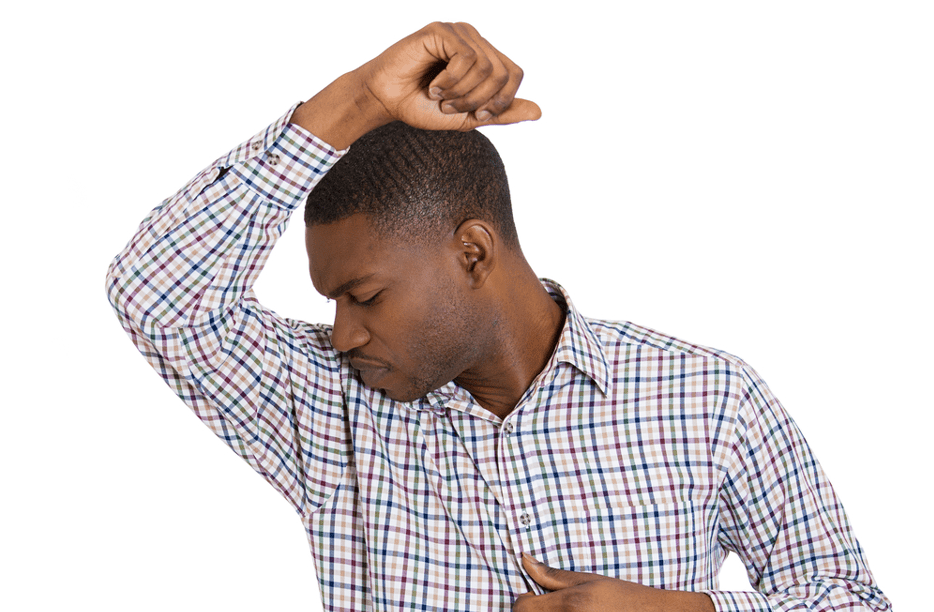Lingering underarm odor after a shower is more common than many people realize. Despite using soap and water, some individuals struggle to maintain freshness. The secret lies in understanding the science behind body odor and taking deliberate steps to address its root causes. With the right strategies, you can conquer this frustrating issue and enjoy all-day confidence.
The science of smell
Sweat itself is odorless, but the bacteria that break it down produce the smells associated with body odor. Two types of sweat glands play a role in this process. Eccrine glands, which regulate body temperature, release watery sweat. Apocrine glands, found in areas like the underarms, produce a thicker secretion that is more prone to bacterial activity.
The environment also plays a role in odor intensity. Warm, humid conditions encourage bacterial growth, which can exacerbate the issue. Even the cleanest individuals may find themselves battling odor if they don’t address these factors.
Why underarm odor persists
One significant factor is how and when you apply antiperspirants. These products work by blocking sweat glands, but their effectiveness depends on timing. Applying them at night, when sweat production is lower, allows the active ingredients to penetrate more effectively. Applying antiperspirant to dry skin is equally important, as moisture can dilute the product and reduce its efficiency.
Physical factors also play a role. Dense underarm hair can trap sweat and bacteria, creating an ideal environment for odor. Similarly, tight or synthetic clothing can trap heat and moisture, which intensifies the problem.
The underarm microbiome is another critical factor. This delicate balance of bacteria varies from person to person, and some bacterial strains produce stronger odors than others. Your personal biology, combined with environmental influences, can tip the scales and lead to persistent odor.
Lifestyle influences
Diet is a major contributor. Foods such as garlic, onions, and spicy dishes can alter the composition of sweat, making it more likely to produce unpleasant smells. Stress also plays a role. During stressful situations, your apocrine glands become more active, releasing sweat that bacteria quickly break down into odor.
Physical activity is another factor. While exercise is healthy, failing to change clothes or shower promptly after a workout gives bacteria the time they need to multiply. The materials you wear matter as well. Natural fabrics like cotton allow your skin to breathe, while synthetic fabrics often trap moisture, encouraging odor.
Effective strategies for combating odor
Begin by optimizing your hygiene routine. Use antibacterial cleansers designed to eliminate odor-causing bacteria. Regular washing, coupled with proper techniques such as thoroughly scrubbing the underarm area, helps remove sweat and debris. For individuals with dense underarm hair, trimming or shaving can make a noticeable difference by reducing areas where bacteria can thrive.
Antiperspirant application is another critical step. Always apply the product at night, ensuring your skin is clean and dry. Nighttime application allows the product to work overnight, blocking sweat glands more effectively. If traditional antiperspirants aren’t enough, consider trying clinical-strength options or products containing aluminum chloride.
Environmental management also plays a key role. Opt for breathable fabrics that wick away moisture, especially during physical activity. Changing clothes regularly prevents sweat from lingering on your skin and contributing to odor. Maintaining proper ventilation in your living environment can also help, particularly in hot or humid climates.
When to seek medical advice
Persistent underarm odor can sometimes indicate an underlying medical condition. Sudden changes in odor intensity, unusual skin irritation, or chronic issues despite trying multiple remedies warrant professional attention. Conditions such as hyperhidrosis (excessive sweating) or bromhidrosis (chronic odor issues) may require specialized treatments.
Dermatologists can offer targeted solutions, such as prescription antiperspirants or treatments that reduce sweat production. In rare cases, procedures like Botox injections or surgery may be recommended to address severe sweating or odor issues.
Achieving long-term freshness
Start by establishing a daily routine that prioritizes cleanliness. Wash your underarms thoroughly with antibacterial soap, and make sure to rinse away all residue. Apply antiperspirant regularly, and rotate clothing to prevent bacteria from lingering on fabrics.
Pay attention to your diet, as what you eat directly impacts the composition of your sweat. Staying hydrated and maintaining a balanced diet can reduce the likelihood of strong odors. Stress management techniques, such as deep breathing or yoga, can also help by reducing the activity of your apocrine glands.
For those living in hot climates, environmental adjustments can be particularly helpful. Keep your home well-ventilated and consider using fans or air conditioning to reduce humidity. These steps create a skin-friendly environment that discourages bacterial growth.
Persistent underarm odor can be a frustrating challenge, but it’s one that can be overcome with the right approach. By understanding the science behind body odor and making thoughtful changes to your hygiene routine, lifestyle, and environment, you can enjoy lasting freshness. If you find that your efforts don’t produce the results you desire, don’t hesitate to seek professional advice.
With time, patience, and a little experimentation, you’ll discover the strategies that work best for you. Freshness isn’t just a fleeting feeling—it’s a goal you can achieve and maintain with the right care and attention.
















